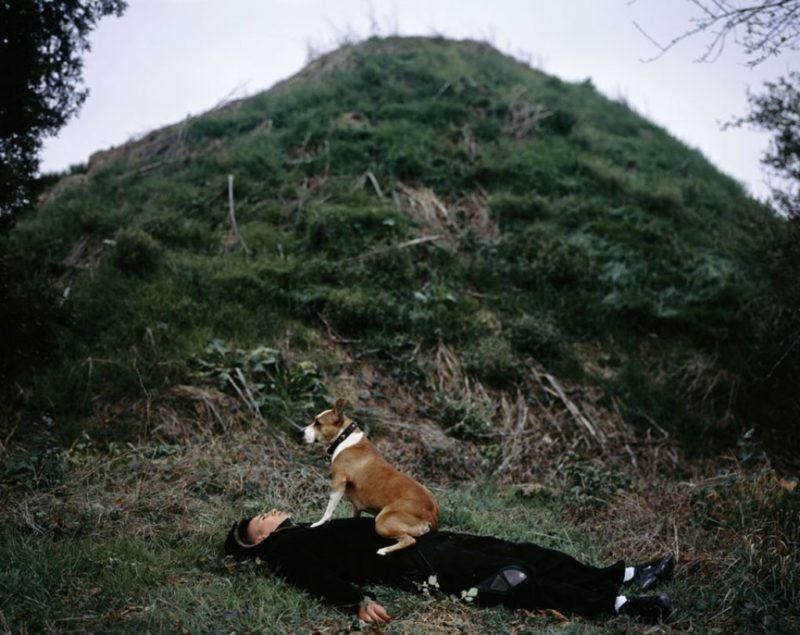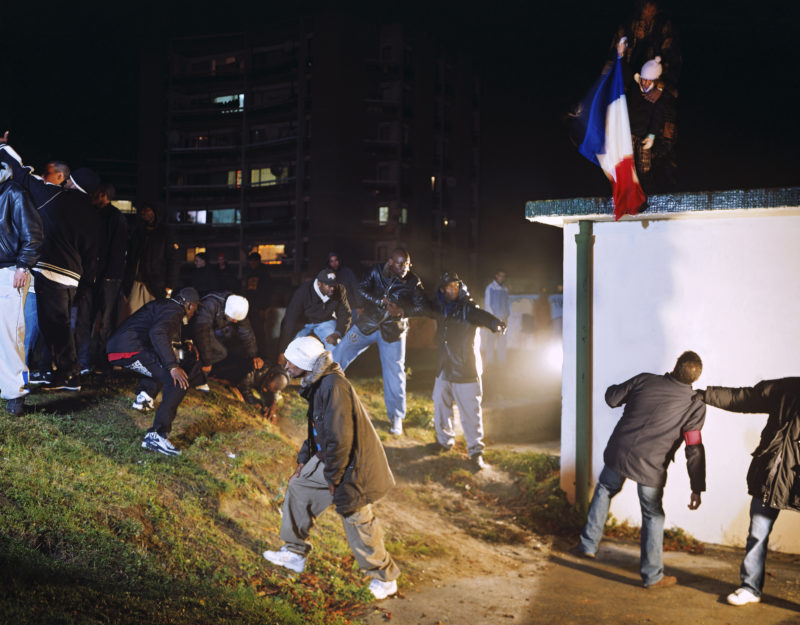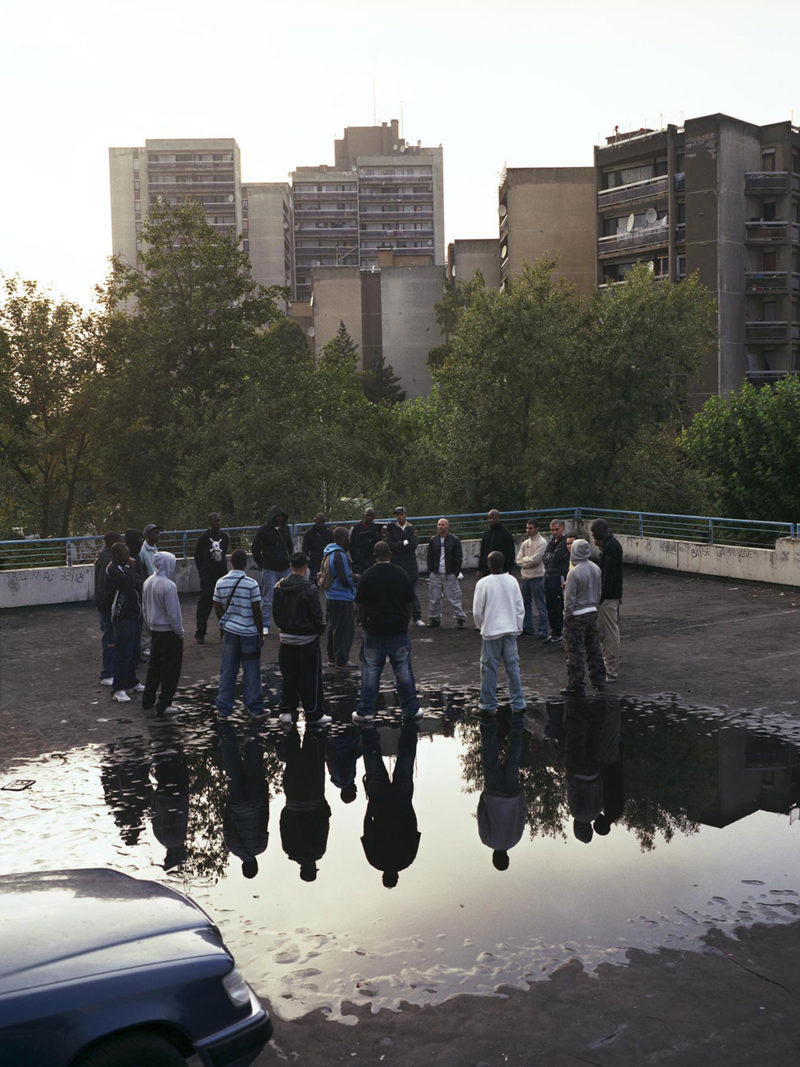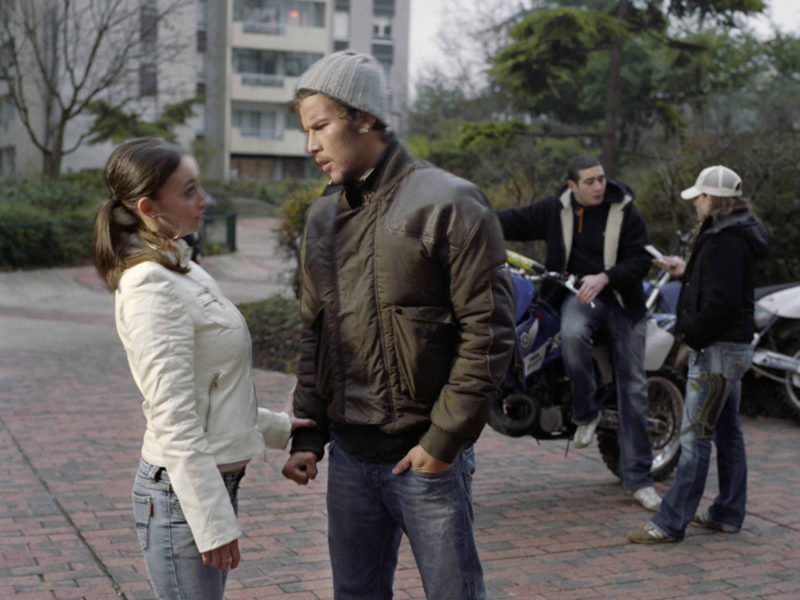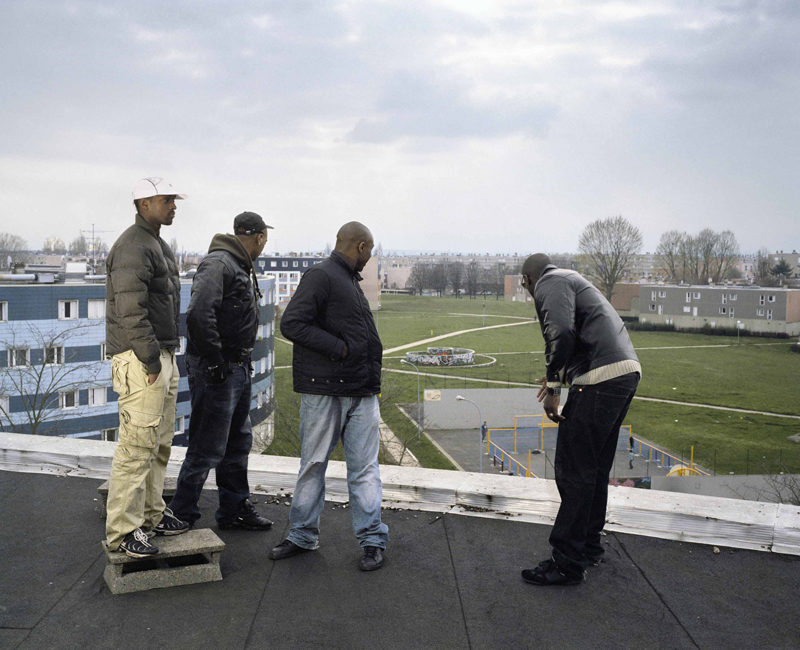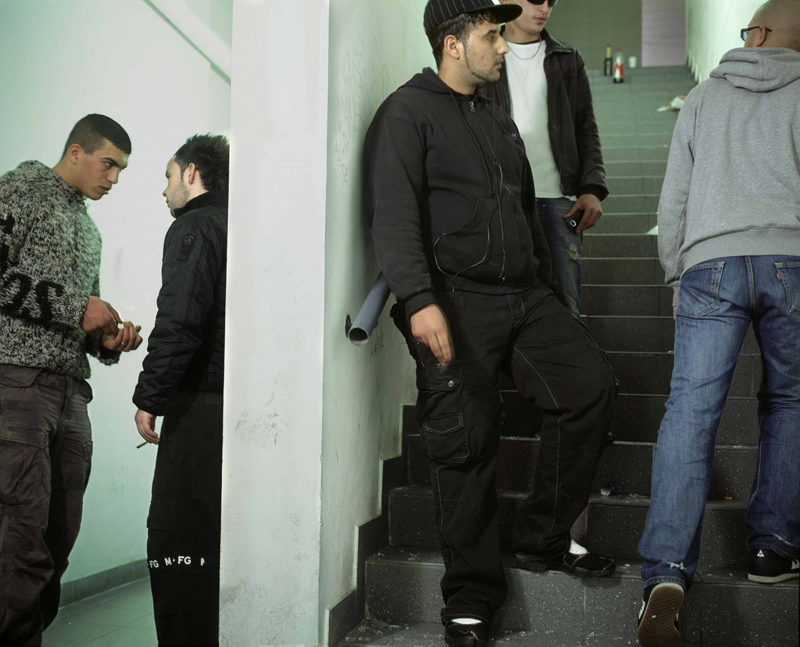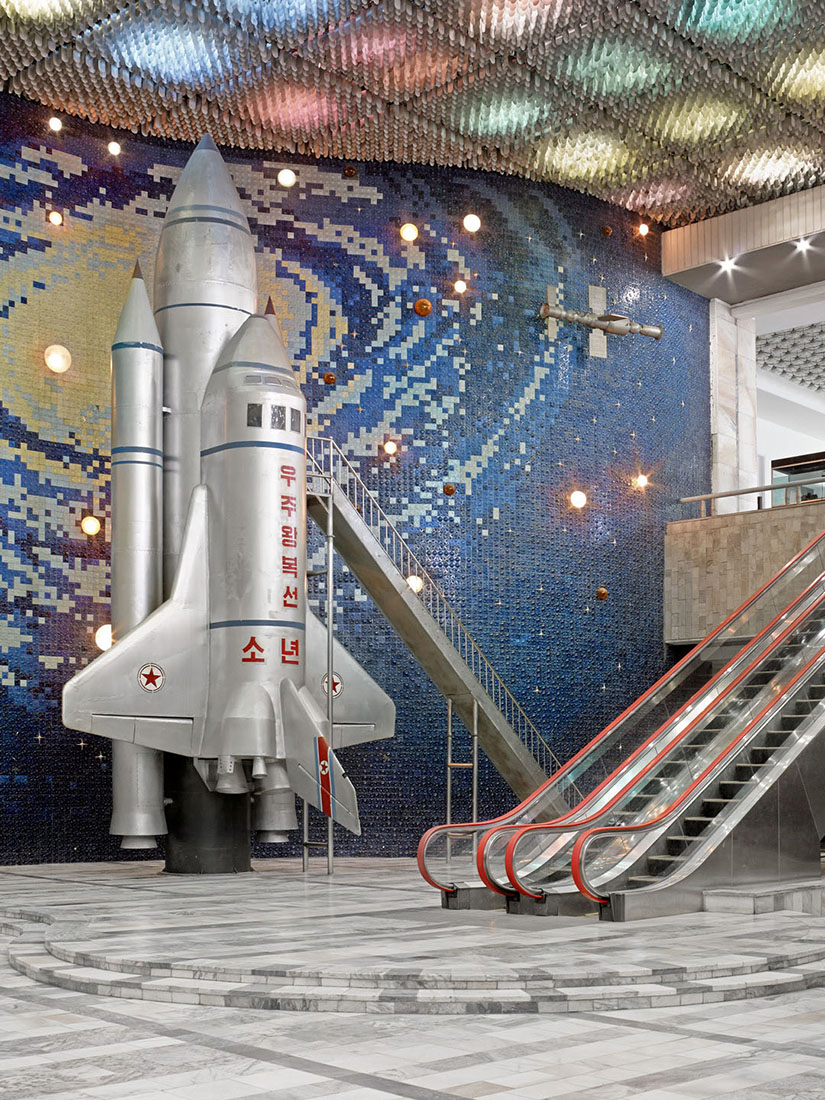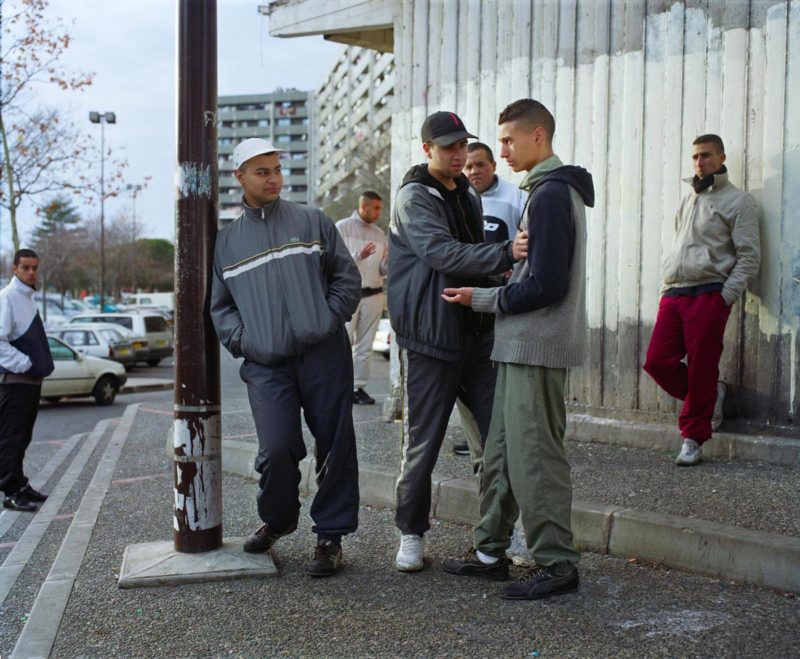
Mohamed Bourouissa’s Parisian suburb photos
Mohamed Bourouissa’s photos, like those of many photojournalists’ work, feature impoverished, stylish young African and Arab men and women, some of who are immigrants 1. In contrast, others are the children of immigrants living in suburban housing projects on Paris’s peripheries.
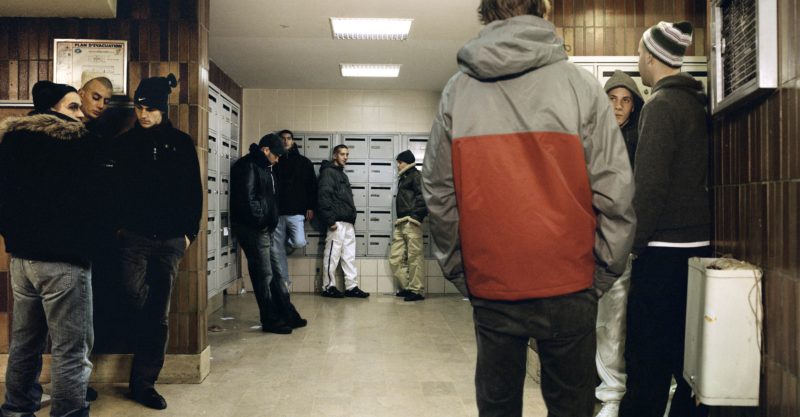
His works depict the tensions and the many issues that have implications for the daily lives of young people who live in France’s suburb, or the metropolis’s peripheries, also known as Banlieue 23.
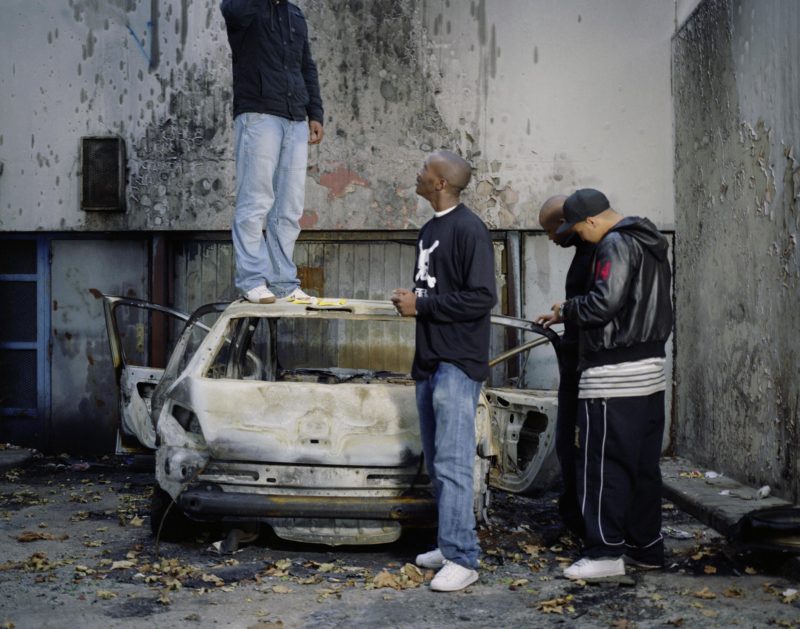
However, the photographs are posed, which is where the inspiration of the classical painting comes in, motionlessly elegant. His gripping portraits 4 have used documentary-style content combined with formal compositions.
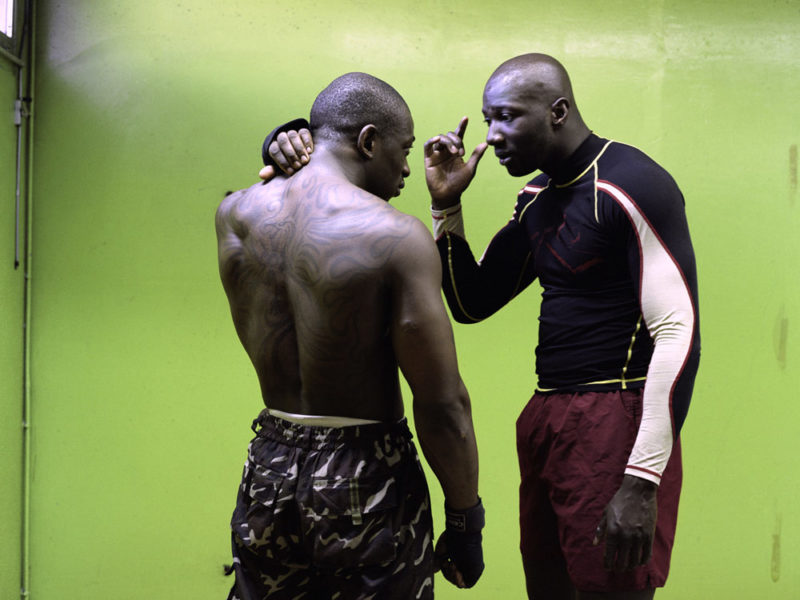
Bourouissa explained the process 5 of staging the images as follows6:
I know most people. The first contact is often made through acquaintances. That’s how I meet other people, who I then spend time with so that they accept me. I show them my first pictures and analyze them at home. Then I design scenes; that is, I sketch them out. Depending on how many performers I have available, I recreate the situation anywhere with two or three people. Only then do I return to the actual locations and ask people to act out a scene. It can also occasionally happen that gestures suggested by the performers are better than what I drafted. You always have to be open to improvisation.
Analysis
His work looks at socio-political issues prevalent in the lives of disenfranchised youth, seeming to call out on the audience to remove any rose-colored glasses and address the problems head-on.
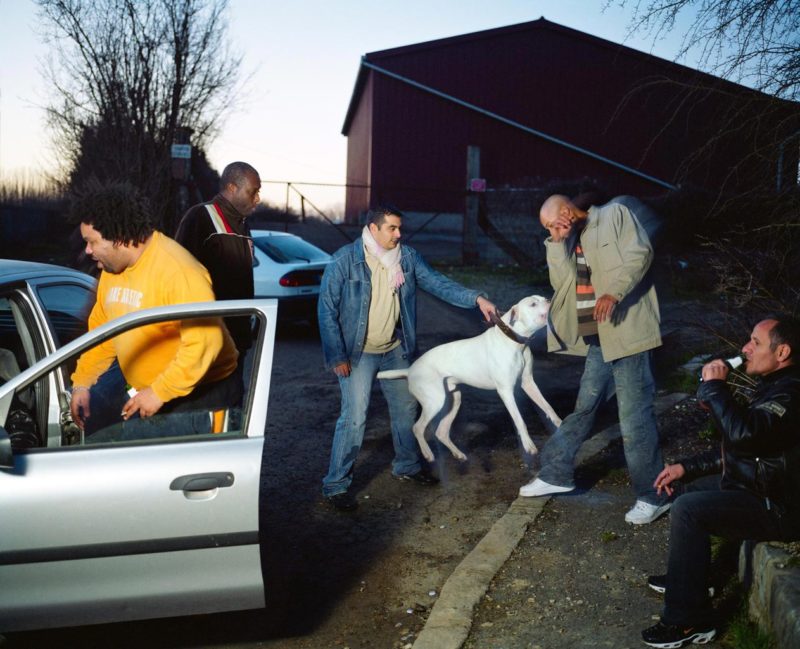
While stunning, the work creates an uncomfortable reminder for those who ignore the periphery, for those who seem to forget that all is not well, serving to make the truth unavoidable.
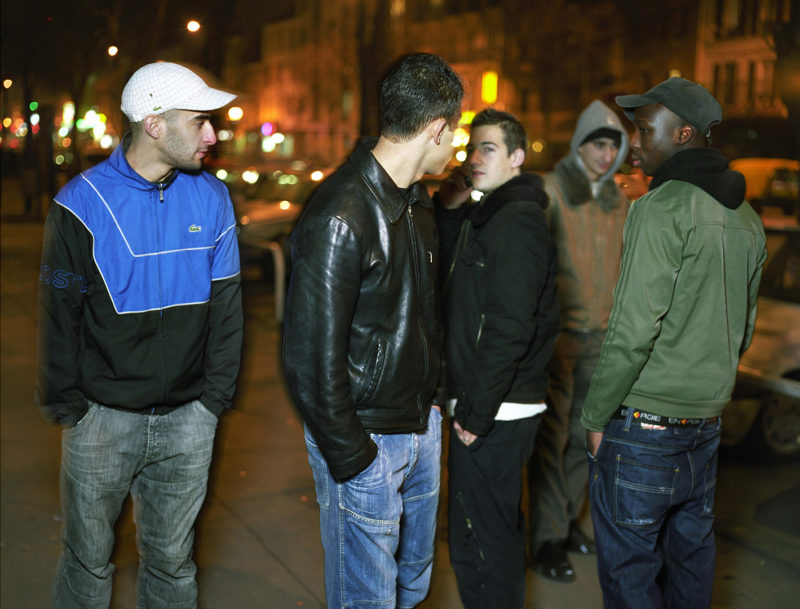
At the same time, some may turn on their heel to run to a nearby overpriced coffee shop where they can hide in the bliss of ignorance, while others may be inspired to address the social issues that this work forces the audience to see.
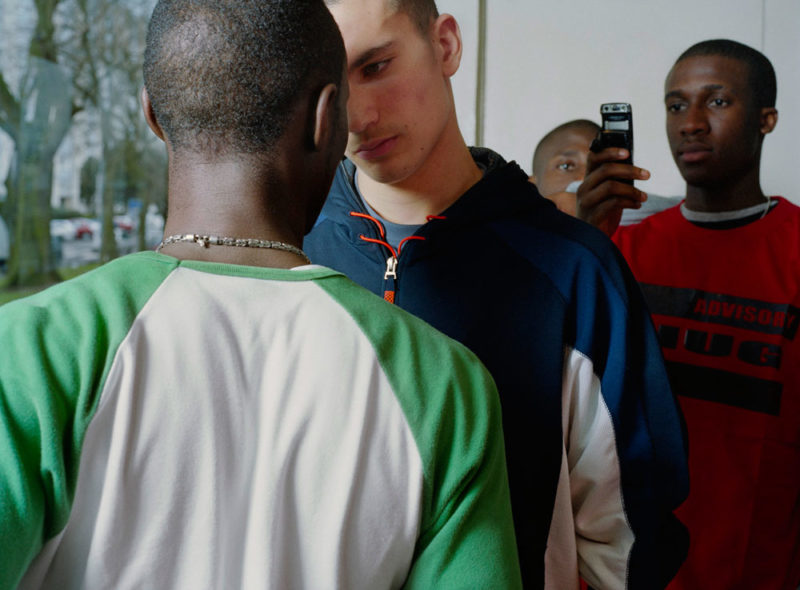
Mohamed Bourouissa’s inspiration
Mohamed Bourouissa’s pictures are expressive declarations pointing at the ethical fallout of photojournalism, focusing on the problematic power relations that take place within the photographic medium in addition to the voyeuristic nature of photojournalism.
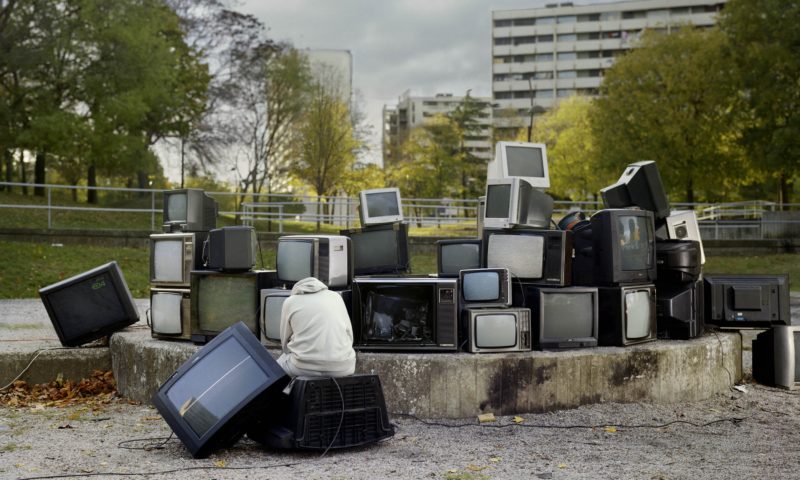
Bourouissa was largely motivated to paint an authentic picture of what really happens in the notorious banlieues, saying 78:
(…) Show our lives, that of the boys in Lacoste shirts, who listened to Booba rap, who sometimes do crooked things and end up in jail like my friend I did the work Temps Mort with. Of course, it was also a way for me to tell and capture my own story.
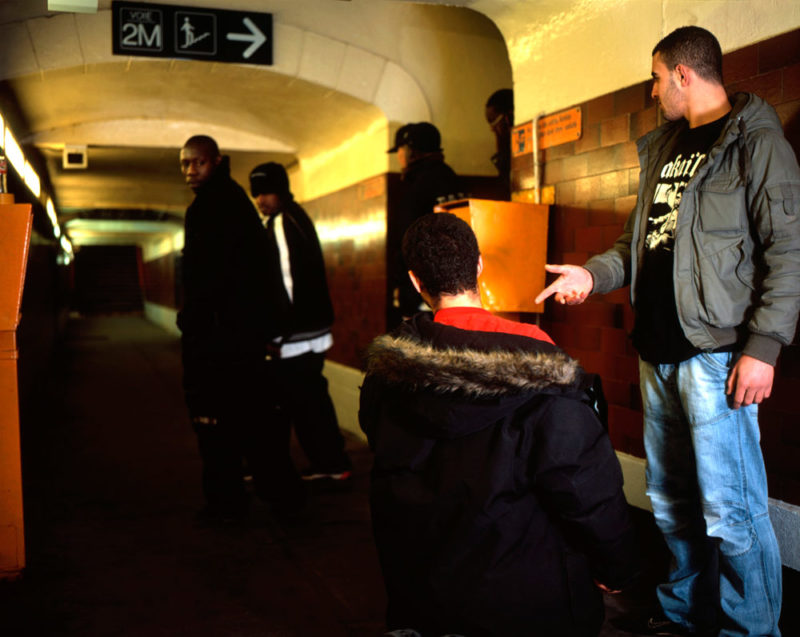
In an interview with ArtReview, the artist said 910:
For me there is a poetry inside the streets. I try to reuse this whole culture and try to explore or to expose this idea that there is a distinction between ‘high culture’ and ‘local culture’. For me, this does not exist. In Périphérique, I was trying to integrate and reuse the code [of art history] with the cultural aspect I have.
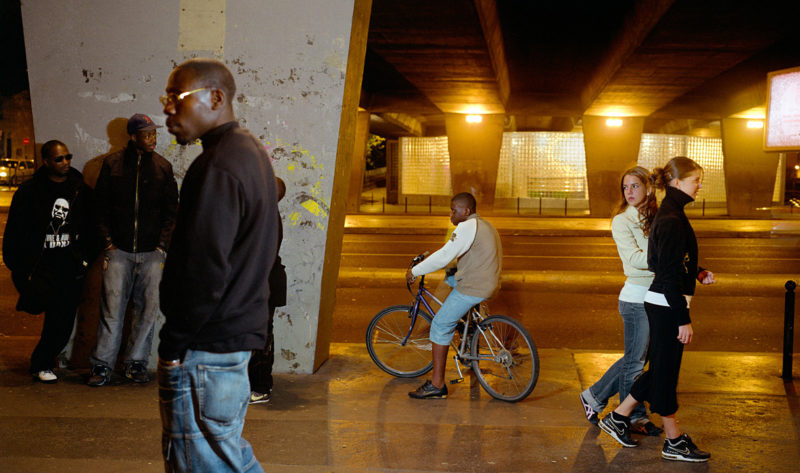
About Mohamed Bourouissa
The Algerian-born, Paris-based photographer Mohamed Bourouissa 11 was born in 1978. His work has been presented and featured in an extensive number of solo and group exhibitions at venues including the Centre Pompidou 12, the Palais de Tokyo, the Palazzo Grassi – François Pinault Foundation in Venice, the Musée d’Art Moderne de la Ville de Paris, the MAXXI in Rome, the New Museum 13 in New York, the Philadelphia Museum of Art, the Finnish Museum of Photography of Helsinki, the Fotomuseum in Rotterdam, and many more spaces.
